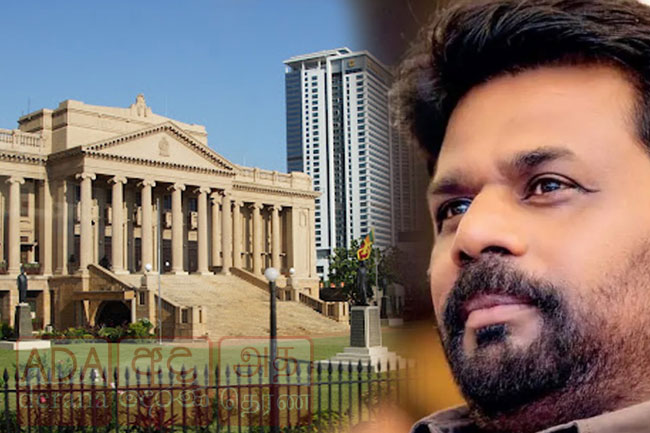Anura Kumara Dissanayake has been sworn in as the 9th Executive of the Democratic Socialist Republic of Sri Lanka, a short while ago.
He was ceremonially sworn in as the country’s new President before Chief Justice Jayantha Jayasuriya at the Presidential Secretariat in Colombo.
The swearing in ceremony commenced following Dissanayake’s arrival at the Presidential Secretariat with a large number of party supporters and well-wishers gathered outside to welcome him.
After taking oath as the new President in a simple ceremony, Dissanayake delivered a brief statement emphasizing his commitment to the nation and the citizens of Sri Lanka.
The Election Commission declared 56-year-old Anura Kumara Dissanayake the winner last night after the second round of counting.
Dissanayake created history on Sunday by winning the Sri Lankan presidential election. Sri Lanka’s Election Commission declared him the winner after the second round of counting. Dissanayake defeated Sajith Premadasa of Samagi Jana Balawegaya (SJB), his closest rival.
In the presidential election held on Saturday, no candidate got more than the required 50% votes in the first round of counting. Due to this, the Election Commission ordered a second round of counting, in which National People’s Power (NPP) leader Anura Kumara Dissanayake won.
Popularly known as “AKD” in Sri Lanka, Dissanayake became Sri Lanka’s first President elected in a run-off. His party Janatha Vimukthi Peramuna (JVP) was on the margins for a long time, but this victory has given a new identity to the party.
The rise of the party under Dissanayake’s leadership has been based on demands for anti-corruption and change in political culture.
Dissanayake hails from rural Thambuttegama in the North Central Province and holds a Bachelor of Science degree from the University of Kelaniya in suburban Colombo.
He joined the JVP (Janatha Vimukthi Peramuna) in 1987, when the anti-Indian insurgency was at its peak. Throughout his political career, he has fought against corruption and for people’s rights.
Anura Kumara Dissanayake’s victory represents a major shift in Sri Lanka’s political landscape. His rise to the presidency, especially at a time of economic and political challenges in the country, shows that the public is looking for a new leadership style and political vision.


